#anti-Vietnam
Explore tagged Tumblr posts
Text

Guerillas of the National Liberation Front expel U.S. forces from Saigon & mark the reunification of Vietnam, April 30th 1975
#vietnam#national liberation front#viet minh#ho chi minh city#reunification day#peoples army of vietnam#liberation army of south vietnnam#workers party of vietnam#anti-imperialism#viet cong#saigon#defense#communism#socialist republic of vietnam#ho chi minh#photography
894 notes
·
View notes
Text
10,000 soldiers at Vietnam’s 50-year reunification parade in Ho Chi Minh City. On April 30, 1975, communist-led North Vietnamese forces captured Saigon, ending the Vietnam War and unifying North and South Vietnam under one government.
#vietnam#resistance war against america#armed struggle#anti imperialism#anti colonialism#victory#liberation of ho chi minh city#video#red.#telegram
457 notes
·
View notes
Text
June 20, 1967 - On this day in 1967, boxing legend Muhammad Ali was given a prison sentence for refusing to join the US military and fight in the Vietnam War. He was sentenced to five years behind bars and fined $10,000, an unusually harsh sentence aimed at breaking his anti-war resistance. “Why should they ask me to put on a uniform and go 10,000 miles from home and drop bombs and bullets on Brown people in Vietnam while so-called Negro people in Louisville are treated like dogs?” argued Muhammad Ali. [source]
#muhammad ali#1967#usa#vietnam#solidarity#anti-imperialism#us imperialism#vietnam war#draft#video#civil rights movement#antiracism#anti-war#anti-militarism
2K notes
·
View notes
Text
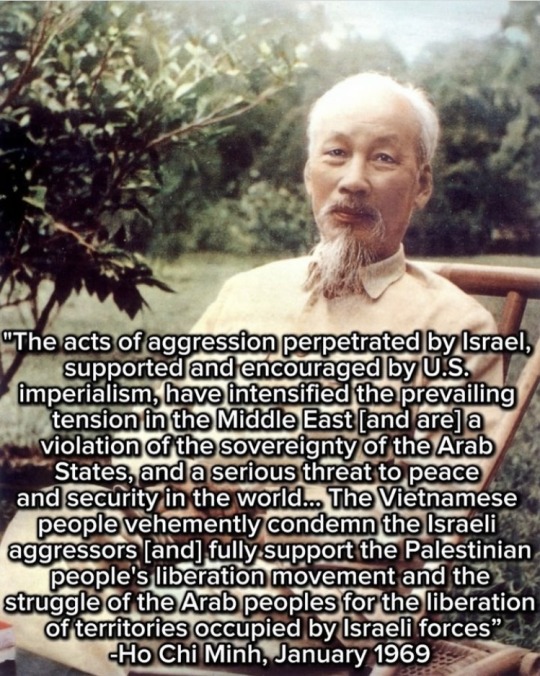
#social justice#current events#human rights#free palestine#gaza#free gaza#palestine#gaza strip#gaza genocide#save gaza#gazaunderattack#vietnam#freepalastine🇵🇸#free palastine#from the river to the sea palestine will be free#important#yemen#tel aviv#jerusalem#stand with gaza#gazaunderfire#anti zionisim#fuck israel#political#political posting#politics#world politics#israel is a terrorist state#political quotes#palestine 🇵🇸
1K notes
·
View notes
Text
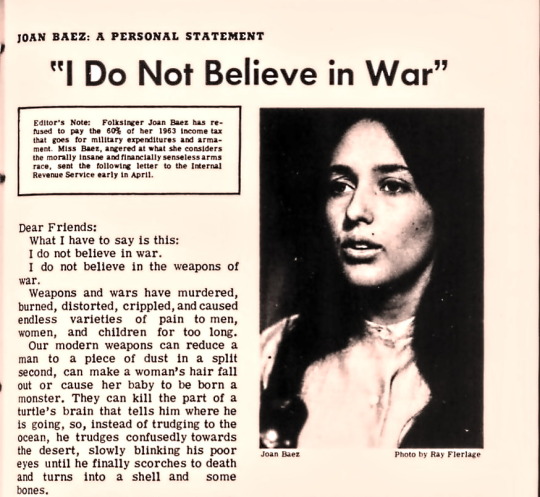
Sing Out! Magazine, vol 14, iss 3, 1964
"I Do Not Believe in War I Do Not Believe in The Weapons of War"
#joan baez#photos#folk#folk revival#folk music#american folk revival#american folk#60s#women of folk#protest folk#anti vietnam war#anti war folk#anti war in vietnam#1960s music#1960s#sing out! magazine
157 notes
·
View notes
Text
I’m reading Kill Anything That Moves: The Real American War In Vietnam by Nick Turse and Jesus Christ it’s such a jaw dropping read. The behavior the US army demonstrated against innocents in Vietnam was beyond evil. In fact I think the two most used phrases in the book so far have been “There were no soldiers/VC there. Only women and children” and “No American soldiers were punished for their actions.”
It’s a very important read; I highly recommend it. But please don’t read if you’re already having a bad day. It tests your endurance for violent content. So major content warning for that.
Here’s an audiobook on YouTube for those who are more inclined to listening rather than reading.
215 notes
·
View notes
Text







from @/pslnational
#mlk jr#mlk#mlk day#revolution#quotes#socialism#anti capitalism#instagram#black lives matter#civil rights#protest#vietnam#economics#washington dc#united states#black liberation
788 notes
·
View notes
Text
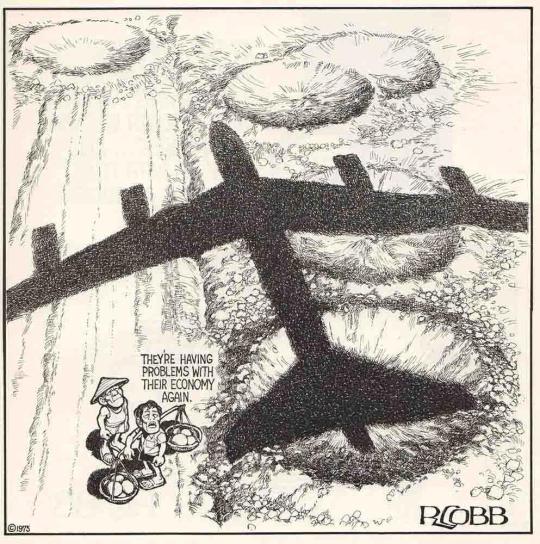
"They're having problems with their economy again" Ron Cobb United States 1975
#propaganda#cartoon#caricature#vietnam#anti imperialism#united states#usa#america#vietnam war#viet cong#cong
988 notes
·
View notes
Text

John W. Tomac on Vietnam War protests in May of 1968
66 notes
·
View notes
Text

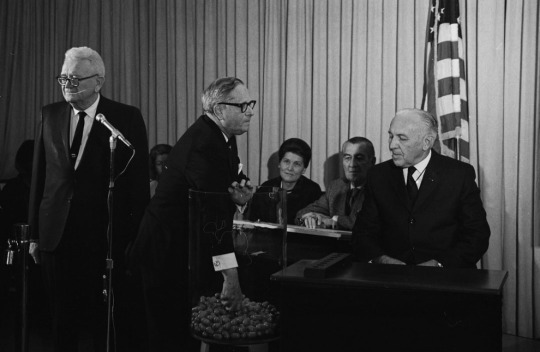
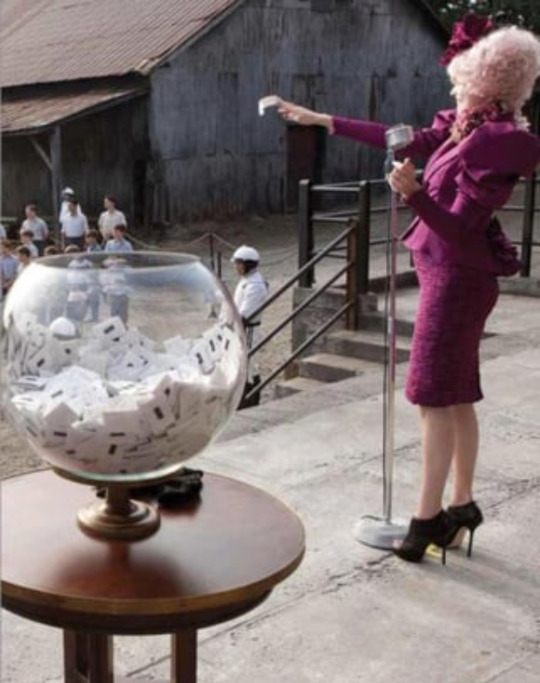

Reposting my most popular Reddit post from r/Hungergames!
Could the Reaping in the Hunger Games be inspired by the 1969 Vietnam War lottery draft?
As we know, Suzanne Collins was inspired to write the series after flipping through tv channels, surfing between the Iraq War and reality tv and realizing that the lines became blurred. Collins’s father served in the Vietnam War, and I’m sure she heard many stories from him. In 1969, the Vietnam War was raging and its unpopularity was being felt all around the USA with growing anti war movements. Because of this, a draft was instated, and here’s how it worked.
366 blue capsules in a jar, one for each day of the year (leap year included). If your birthdate was drawn, congratulations son! You’re first in line to serve the empire. The first date drawn was September 14th, and the last was June 8th. They did this again in December, with letters instead of numbers. The last draft lottery was in 1975, and from 1965-1972, over two million men were forced to fight because of this. There are strong parallels between the Vietnam lottery and the Reaping. During the Vietnam War, poor, uneducated men were more likely to be chosen, as the rich could pay their way out of service. Much like the impoverished Districts being unable to resist. The Hunger Games is a much deeper series than some people give it credit for. It explores issues such as imperialism, propaganda, capitalism in decay, and revolution. It’s not just “some kids story.” It’s even more radical than we remember. Reading again as an adult has been incredibly rewarding. The imperial core (USA, UK, Japan, Canada, etc.) is the Capitol. The imperial periphery (Iran, Vietnam, Cuba, Yemen, etc.) are the Districts. The truth is stranger than fiction.
#effie trinket#hunger games#the hunger games#everlark#history#dystopian#anti capitalism#the truth is stranger than fiction#vietnam war#reaping day#suzanne collins
202 notes
·
View notes
Text
U.S. still owes Vietnam reparations

U.S. imperialism suffered its second historical defeat in history on April 30, 1975, at the hands of the Vietnamese people when U.S. troops fled in helicopters from the rooftops of buildings in U.S.- occupied Saigon. One year following the overthrow of the South Vietnam U.S.-puppet regime, South and North Vietnam were reunited. Saigon was renamed Ho Chi Minh City in honor of the great communist president of North Vietnam – and Hanoi became the capital of the united country.
This 25-year, undeclared U.S. war was initiated by President Harry Truman when he authorized a Military Assistance Advisory Group to assist the French military which invaded Vietnam for a second time in late 1946 and reestablished colonial rule.
The Vietnamese guerrilla army kicked the French colonizers out of the north in 1954 after a decisive battle at Dien Bien Phu. Washington sent advisers to the South’s puppet regime, and from 1964 to 1968, President Lyndon B. Johnson expanded the war, sending in over a half-million troops at one time.
From 1962 to 1975, an estimated three million Vietnamese, out of a population of over 46 million people, died in the genocidal war, along with over 58,000 U.S. troops. Washington expanded the war in part to counter the growing strength of the Chinese Revolution.
Along with the tremendous loss of life by U.S. troops carrying out massacres of civilians as well as the Vietnamese fighters, Vietnam was also a victim of ecocide. It has been well-documented that over four million tons of bombs were dropped on the mostly rural areas of South Vietnam by the U.S. Air Force.
Many unexploded bombs still threaten the lives and limbs of the population today. Additionally, 400,000 tons of napalm were used to not only maim the civilian population, but to also poison the soil, the water and the air.
Read more at workers.org
57 notes
·
View notes
Text
Assata Shakur on the importance of Socialism and anti-imperialism. [video]
#socialism#social justice#communism#assata shakur#quotes#black liberation#black liberation army#bla#internationalism#anti-imperialism#usa#us-imperialism#video#vietnam#solidarity
232 notes
·
View notes
Text










"Though frontiers and mountains stand between us, Proletarians of the whole world come together as one family."
- Ho Chi Minh (1960)
Happy Vietnam Victory Day!
(Pt.1)
#united front#meme#anticapitalism#communism#socialism#capitalism#free palestine#memes#anti imperialism#antifascism#free sudan#free congo#free yemen#vietnam#vietnam war#ho chi minh#imperialism#colonialism#oppenheimer memes#toy story memes#my lai
34 notes
·
View notes
Text
Hate the popular narrative of the disrespected, spat upon Vietnam War veteran becos it erases how badly draft dodgers, conscientious objectors, and anti-war/anti-imperialist protestors were treated by the US government and society, maybe even worse. They were blacklisted, arrested and some were even killed by state sanctioned violence but sureee, cry about how the big bad hippies were mean to you for blowing up Vietnamese villages.
177 notes
·
View notes
Text
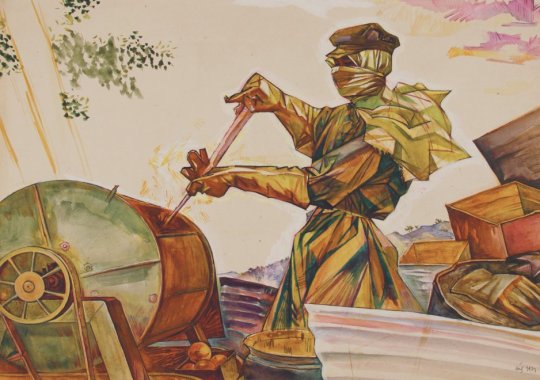
Explosives Factory by Bùi Quang Ánh (1971)
#art#vietnamese art#vietnam#bui quang anh#vietnam war#defense#anti-imperialism#peoples army of vietnam#national liberation front#liberation army of south vietnnam
77 notes
·
View notes
Text
i love you vietnam vet au cherrycola where soda hasn’t written to anyone in months because he’s terrified and he doesn’t want to give his loved ones hope. but one day he just up and sends a girl he hasn’t spoken to basically since he dropped out of high school a zero-context letter saying “i get why you hate fights now” and something implying he’s been in love with her since first grade, and in the package with the letter is a book with a cherry blossom flower pressed inside. because he saw it in a dark time over there and it reminded him of her.
#vietnam vet soda & cherry are like to me you know how in captain america he’s got peggy’s picture in his compass#sodapop curtis#cherry valance#cherrycola#the outsiders musical#the outsiders#anti war soda#my post
65 notes
·
View notes